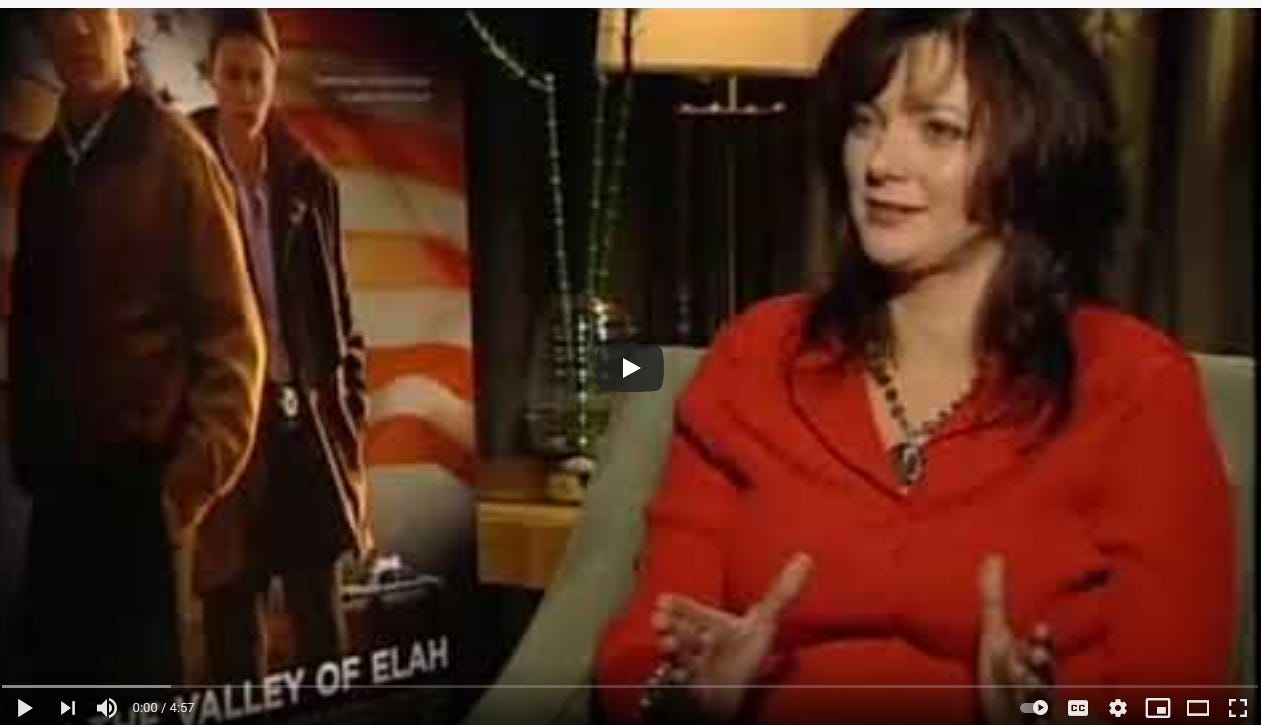July 15, 2021
by Cilla McCain
Today marks 18 years since the brutal murder of Army Specialist Richard Davis - a tragedy that altered the course of many lives, mine included. I want to take a moment to remember him and his family by sharing an article from my archives. For those who prefer to listen, an audio version is also available on the River City Charlie Podcast.
In July 2003, Army Specialist Richard Davis returned from the invasion of Iraq and disappeared almost immediately. Months later, his skeletal remains were found in a small patch of Georgia woods. Four members of his own platoon were arrested for his murder. Stabbed in excess of 100 times and set on fire, his family was astounded at the lack of information made available to them. There were times when his father could not tell who the military was standing up for: his dead son, or the soldiers who slaughtered him.
Writing Murder In Baker Company was grueling. There were nights when the images and words I was hearing would shake me out of the most exhausted sleep. It still happens today. The years of dissecting the last moments of Richard Davis’s life; years of trying to understand and put into words the reasons why this murder had happened, was torment at best. People suggested I walk away from it. But how could I? A suffering of this magnitude begs to be exposed and to walk away from it was simply not in me.
If I had, I knew it would follow me for the rest of my life.
So imagine my dismay when I learned that someone actually suggested my book burn. “Kindling for my backyard fire pit” were the words of a blogger, while admitting that he had never read the book and did not know what is involved. For a writer, there is nothing worse than the notion of having your words — words that took years to research and put together — going up in flames. It felt like someone had suggested I burn the American flag and I suddenly knew what writers in a communist nation must feel as they hide in basements writing about the injustices that exist in their world.
However, there was one particular comment made by the blogger that reflected a common assumption. He suggested that since investigators arrested the murderers, then that should be the end of it. In other words, the problem is solved, right? Wrong. He really couldn’t be more wrong.
Click here for video interviews.
Many people believe criminal investigations handled by the military are always top-notch and above reproach. However, there is a whole culture of patriotic military families who will vehemently disagree with that opinion.
When I heard of Richard’s horrifying murder, my first thought was “How could this have happened? Soldiers don’t do this to one another!” For the most part, that is true. Honorable American soldiers stand by their brothers in arms for a lifetime. Even when the battles are over and they return to their normal routines, they are forever bonded by war experiences that nobody else can understand or fathom, unless they were there.
Nevertheless, this tragedy did indeed occur, and unfortunately, for all of us, it is not an isolated incident. I have met many families like the Davis’s; families who lost a loved one to a non-combat military death and feel thrown away by the system their sons, daughters, or spouses were sacrificed to. Not all of the deceased soldiers were murdered. “Non-combat death” is a catch-all phrase used to describe any death not occurring on a battlefield. Some soldiers commit suicide, some accidentally overdose on the wide variety of prescription meds given to them for anxiety and depression. Still, for others, the circumstances surrounding their deaths are so murky, nobody knows anything except the fact that they are dead. But are these deaths inevitable? After all, in the civilian world people die under the very same circumstances every day, so maybe they are. However, when the death involves military personnel and you take the time to listen to the survivors you will understand that a tangled web of bureaucratic red tape and sometimes-downright deceit exists in nearly every case.
Non-combat death families are isolated by investigative design.
“You don’t really want to drag your son’s memory through the mud by bringing all of his problems to light, do you? One mother was asked after her son jumped out of a window at the urging of his Sergeant following months of depression.
This type of callous response usually follows a family member asking very innocent and logical questions. Questions such as:
“Where are the clothes my son was wearing when he died? Why have they been washed in bleach?
“Why was my daughter taking so many prescriptions?
“My husband was right-handed, how could he have shot himself in the left temple? Did you test his hands for gunshot residue? Why not?
“What do you mean, my daughter used her big toe to pull the trigger?”
The list is endless.
I knew this would be a hard book to promote. Nevertheless, that reality didn’t sink in completely until I went to my first few book signings. In Columbus, Georgia where the crime took place, there was an outpouring of support, yet I also had lifelong friends whom I believed would never leave my side, not come within 20 feet of the book. At the Savannah Book Festival a few months ago, thousands of people poured through the venue and past my table. Mothers peered at the book and looked as though they may cry. Old veterans wearing their VFW caps would examine the cover intensely and then look up at me, nod their heads in a knowing manner and keep going. I heard comments such as “It’s too horrible to know about.”
I cannot help but wonder if these same people went home that night and watched a carnage-filled horror movie to entertain themselves. They probably had a bowl of popcorn and a soft drink to boot. I do not understand the contradiction.
Books are the world. Period. Some books entertain and some educate and inform. They are a direct interpretation of the world around us for our future generations to use in order to improve society and the human condition. Think back on topics that for their era were seen as taboo to discuss. Topics such as racial inequality, child abuse, AIDS, and breast cancer were whispered about. Looking back, does it not seem like the pinnacle of ignorance? Moreover, is it not tragic that people died in pursuit of their right to discuss them aloud?
So to answer my own question about whether or not people burn books in America.
My answer is “yes they do.” But instead of using matches to start the fire, they use propaganda, fear, and denial.
“Why aren’t there books about the good things being done by soldiers?” the book-burning blogger finally asked his readers.
Well, sir, those books do exist, and rightfully so. However, many times, in order to educate and help society we must be willing to examine what many people would rather ignore.
The murder of Army Specialist Richard Davis touched many lives. An inspired by movie “In the Valley of Elah” starring Tommy Lee Jones and Charlize Theron was released in 2007. Back then, people were not ready to hear about the horrors that some of our troops and their families face. I wonder if they are now? Since that time I’ve contracted for 2 more books, become a ghostwriter/editor, and a co-founder of Military Families for Justice. Please help protect the constitutional rights of bereaved military families by signing our petition here.










Share this post